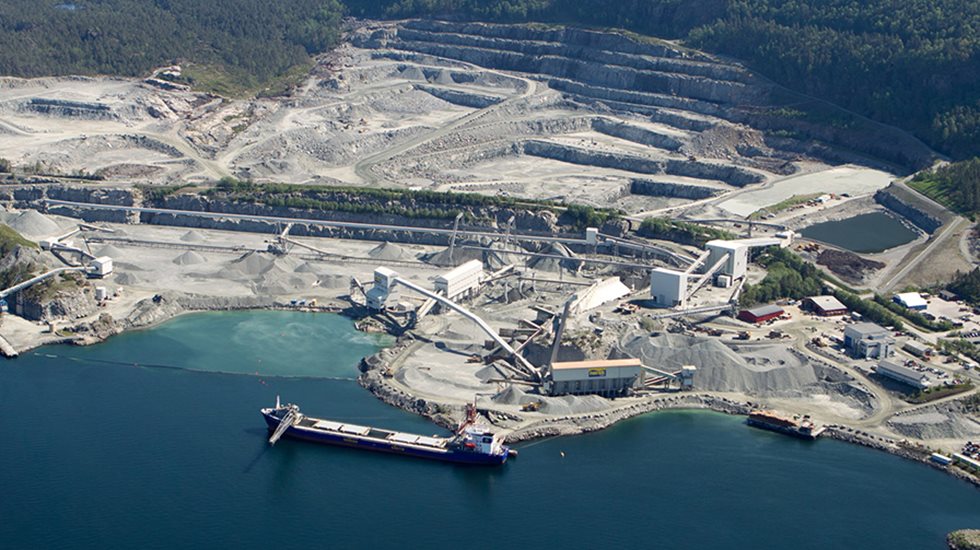With the re-engineered crushing chamber and special material selected for wears, the power consumption of the Jelsa quarry’s primary gyratory crusher was reduced from 0.21 to 0.15 kWh per one ton crushed. This result was achieved without compromising crushing capacity and wear life.
A 63–75 primary gyratory crusher was assembled during the Jelsa quarry extension in 2009–2011. The gyratory crusher met the capacity requirements of 2600–3000 tons per hour nicely. However, there were high power spikes that could reach as high as 1000 kW, especially when crushing with somewhat worn wear parts.
Power spikes and mantle cracks as challenges
In many cases, the original mantles had cracked prematurely, causing unexpected production stops. As a critical component of Jelsa’s entire process, the primary gyratory wear problem had to be resolved. Metso accepted the customer’s proposal to re-engineer the non-Metso-brand crushing chamber. Metso’s “Chamber Optimi” services are available for solving chamber problems worldwide.
Experts from both sides of the ocean
To solve the problem, Metso carefully studied all the details, engaged in several discussions with the customer, and took the necessary measurements during quarry visits. A task group comprising Finland’s and the US’s best experts in wear parts materials and primary gyratory crusher technologies was set up.
As a result of the engineering studies, Metso proposed an optimized cavity, including a one-piece, 3.3-meter-tall, 13-ton floating-type mantle, casted of ductile XT525 manganese steel and composed of concave segments. The design of the new cavity made use of Metso’s state-of-the- art simulation tool, optimizing the chamber profile.
The re-engineered crushing chamber design contained customized features to prevent pressure spikes and excessive crushing force. The concave segments were cast using three different alloys in order to achieve the optimum gradient type, abrasion resistance and the ductility needed for each concave tier.
The new crushing chamber’s choke zone was set to the optimum position, and the fine-materials flow through the cavity was resolved. A higher throughput could be achieved with a smaller stroke, as well as a reduced cupping risk, thanks to the more balanced crushing chamber.
Exact values with the simulation
The first new mantle and concave segments were installed in early August 2012. With this assembly, two million tons were crushed with exceptional power savings. The second wear parts set, assembled in the beginning of 2013, features several improvements to prevent the loosening of the mantle.
“According to Metso’s simulation tool, the new cavity design should increase the throughput capacity by 10%. But since we are not able to utilize the boosted capacity in the primary crusher, a stroke reduction of 10% was the target instead. It was impressive to see how the actual capacity and power draw matched the simulated values exactly,” comments Tor Gautestad, Plant Manager of the Jelsa quarry.
“Operation with the new cavity is significantly smoother, with fewer and lower power peaks. Even towards the end of the cavity’s lifetime, the operation remains smooth and the cavity profile close to optimal. Minor modifications are still necessary to fully utilize the wear parts, and this is progressing continuously in close cooperation with the experts from Metso,” Gautestad adds.
Scandinavia's largest quarry
The crushing company Norsk Stein, a subsidiary of Mibau, has operated Scandinavia’s largest quarry in Jelsa, Norway, since 1987. From the Jelsa fjord, north of the city of Stavanger, some 10 million tons of high-quality granodiorite per year is shipped to European markets. The quarry’s total available reserves are estimated at approximately 350–500 million tons.
